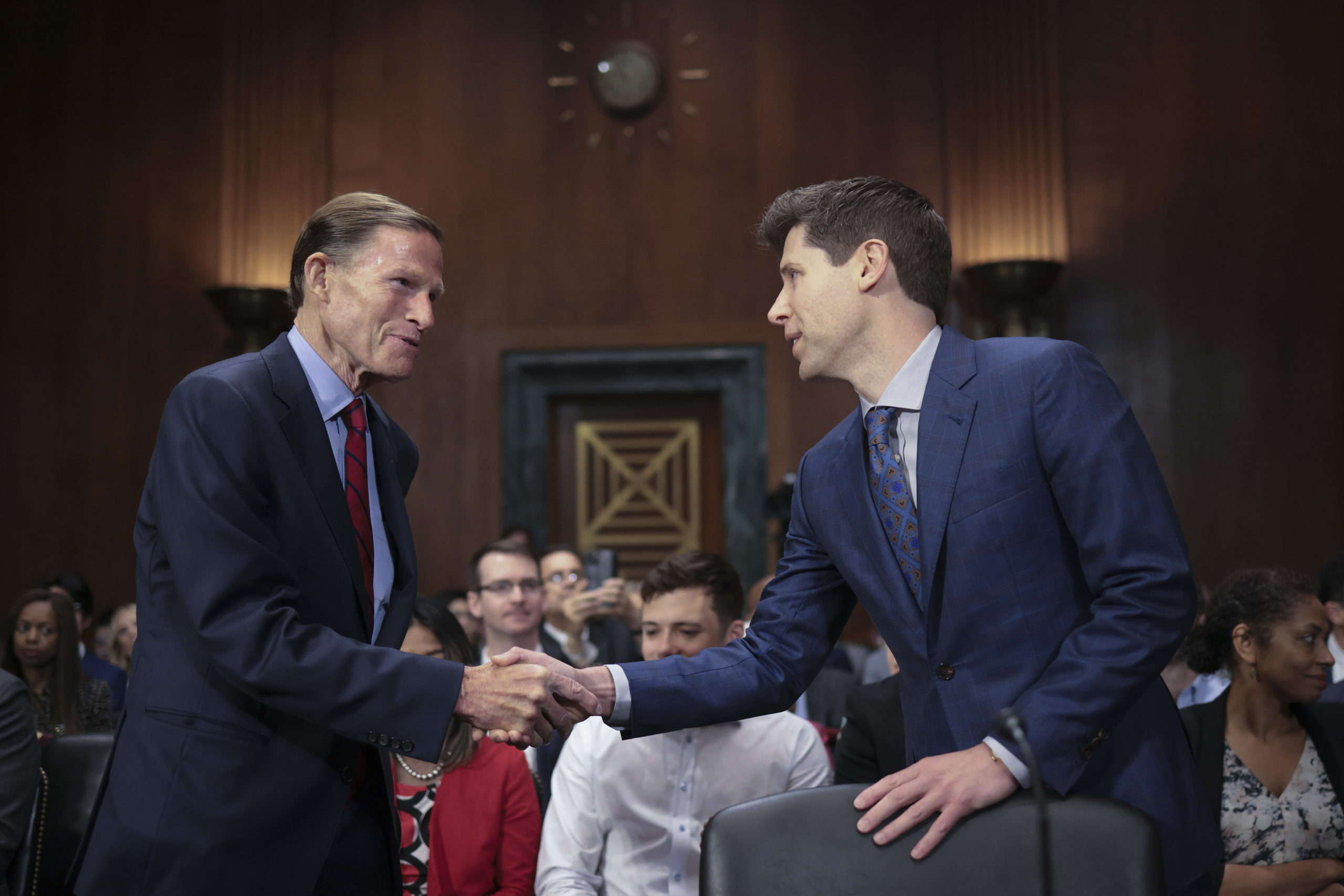As lawmakers from either side of the aisle seem keen to start regulating synthetic intelligence, specialists informed the Every day Caller Information Basis that any critical reforms face vital obstacles to implementation.
OpenAI CEO Sam Altman testified at a Senate Judiciary Committee listening to on Tuesday, and known as for the regulation of synthetic intelligence by implementing licensing and testing necessities or creating a brand new company, to which many lawmakers appeared to be receptive. Nevertheless, truly passing laws to manage AI, or creating an company to supervise it as subcommittee members additionally proposed, presents quite a few authorized, political and sensible issues, specialists informed the DCNF.
“I believe it’s untimely to name for this form of huge regulation of what’s at the very least proper now nonetheless type of a novelty,” Zach Graves, head of coverage on the Lincoln Community, informed the DCNF.
If not a brand new company, then regulation of synthetic intelligence would require a “higher type of authorization of powers for an present [agency],” Graves mentioned. “And within the US, these are going to run into some actual constitutional exams” equivalent to freedom of speech.
Since synthetic intelligence chatbots can solely generate speech utilizing code programmed by people, the textual content they produce might be thought of a type of human speech, wrote AI-focused lawyer John Frank Weaver in 2018.
Graves additionally mentioned he significantly doubts that lawmakers will promptly advance any substantial AI rules. “I simply don’t suppose individuals are very clear about how that is going to work and I don’t suppose they actually have a transparent political path to doing something,” he mentioned. (RELATED: Federal Companies Pledge To ‘Vigorously Implement’ Legal guidelines Towards Discriminatory AI Applied sciences In Joint Assertion)
On the Tuesday listening to, lawmakers really useful guidelines that require firms to disclose the internal workings of their AI fashions and the datasets they make the most of. In addition they steered implementing antitrust measures to ban monopolization by firms like Microsoft and Google within the rising AI trade.
Proponents of regulating synthetic intelligence argue that such measures are needed due to the potential harm the expertise could cause.
“I do suppose that there needs to be an company that’s serving to us make it possible for a few of these programs are secure, that they’re not harming us, that it’s truly useful,” AI ethicist Timnit Gebru mentioned in a 60 Minutes interview in March. “There needs to be some form of oversight. I don’t see any cause why this one trade is being handled so otherwise from every little thing else.”
Joel Thayer, president of the Digital Progress Institute, informed the DCNF he helps some type of regulation, but additionally has some considerations.
“I agree in precept with Sam Altman’s feedback that we want a complete technique on how greatest to cope with AI, and we should achieve this by leveraging all of the instruments in our toolkit,” Thayer mentioned.
“A worthy preliminary technique could be two-fold, stronger antitrust enforcement to lower the centralization of these markets and, thus, permitting for brand spanking new market entrants in AI (equivalent to OpenAI),” Thayer mentioned. “The opposite could be extra transparency on how they’re creating their AI programs—most significantly with whom they’re partnering.”

WASHINGTON, DC – MAY 16: Samuel Altman, CEO of OpenAI, greets committee chairman Sen. Richard Blumenthal (D-CT) whereas arriving for testimony earlier than the Senate Judiciary Subcommittee on Privateness, Expertise, and the Regulation Might 16, 2023 in Washington, DC. The committee held an oversight listening to to look at A.I., specializing in guidelines for synthetic intelligence. (Picture by Win McNamee/Getty Pictures)
Nevertheless, over-regulating AI may current appreciable hazard to U.S. nationwide safety, particularly regarding China, Thayer informed the DCNF.
“The China risk is preeminent, and we should put our focus there first,” he mentioned.
Overly strict rules will hamper the US’ potential to advance its AI applied sciences, James Czerniawski, senior coverage analyst at Individuals for Prosperity, informed the DCNF. “Something that we do to gradual and impede our progress on AI, it’s simply permitting China to shut the hole that exists between the US and China,” he mentioned.
Proposals that scale back the velocity of AI improvement within the U.S. could be undesirable as a result of “when you’re the primary … to go and crack by any of these items, that provides you an immense quantity of energy,” Czerniawski mentioned.
Nevertheless, OpenAI CEO Altman informed lawmakers that authorities oversight is essential due to the potential risks of future AI fashions.
“We expect that regulatory intervention by governments shall be vital to mitigate the dangers of more and more highly effective fashions,” Altman mentioned in his opening assertion.
“For instance, the U.S. authorities may think about a mixture of licensing and testing necessities for improvement
and launch of AI fashions above a threshold of capabilities,” Altman mentioned. Different methods AI firms can work with the federal government that he shared had been “guaranteeing that essentially the most highly effective AI fashions adhere to a set of security necessities, facilitating processes to develop and replace security measures, and analyzing alternatives for international coordination.”
OpenAI didn’t reply to the DCNF’s request for remark.
All content material created by the Every day Caller Information Basis, an unbiased and nonpartisan newswire service, is out there with out cost to any professional information writer that may present a big viewers. All republished articles should embody our brand, our reporter’s byline and their DCNF affiliation. For any questions on our pointers or partnering with us, please contact [email protected].